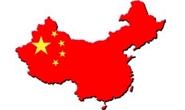Government/Policy

August 7, 2019
Opinions Split on China Currency Manipulator Label
Written by Sandy Williams
The trade war with China escalated on Monday as China allowed its currency to weaken in retaliation for a new round of tariffs imposed by President Trump. The yuan fell to 7 per U.S. dollar, the lowest it has been in 11 years, making exports from China cheaper and more competitive versus the United States. China blamed the currency fall on Trump’s “unilateralism and trade protectionism measures and the imposition of increased tariffs on China.”
Trump reacted by declaring China a currency manipulator, which China vehemently denied.
“The United States disregards the facts and unreasonably affixes China with the label of ‘currency manipulators,’ which is a behavior that harms others and oneself,” the People’s Bank of China (PBOC) said in a statement on Tuesday. “The Chinese side firmly opposes this.”
The PBOC said the label of currency manipulator would not only “seriously undermine the international financial order, but also trigger financial market turmoil. It will also greatly hinder international trade and the global economic recovery, and ultimately will suffer from it.”
The currency dispute caused the Dow Jones to fall nearly 960 points on Monday afternoon before settling at a 767 point decline.
The U.S. Treasury Department issued five semiannual reports during the current administration that expressed concern about China’s currency practices, but stopped short of accusing China of currency manipulation. Last month, Trump discussed the idea of tinkering with the value of the U.S. dollar. In July, concerned about the strength of the U.S. currency and frustrated with Federal Reserve caution, Trump told reporters that he could weaken the dollar “if I want to,” but had decided not to intervene while still keeping the idea open.
Daniel Ikenson, director of the Center for Trade Policy at the Cato Institute, agreed with China that Trump’s protectionist policies are impacting currency valuation and prolonging the trade war.
“His protectionist policies are driving down the value of the Chinese currency and driving up the value of the dollar. And that’s just going to encourage trade deficits in perpetuity,” said Ikenson. “If we want the dollar to settle down, we need to have more predictable, level-headed policies in place going forward.”
“The [Chinese] government has been, if anything, doing the opposite: protecting the renminbi from collapsing,” says Jonas Short, head of China research at NSBO, an investment bank. “If you allow for the natural exchange rate for renminbi against the U.S. dollar, it should be about 7.2 to 7.3 per dollar.”
The U.S. steel industry has been calling for China to be labeled as a currency manipulator for years.
American Iron and Steel Institute President and CEO Thomas J. Gibson issued the following comment on Monday:
“Today’s action by the Treasury Department is welcome news for the steel industry and American manufacturing. China was, and remains, a currency manipulator. The Chinese government’s actions today are just one more instance of its active role in manipulating the value of its currency to promote Chinese exports. We applaud the decisive action today by President Trump and the U.S. government to address the damage, and unfair competitive advantage, that China’s undervalued currency has caused to our nation’s manufacturing sector – especially the steel industry.”
Former Nucor president and Trump advisor Dan DiMicco also praised the president for his actions and called for even higher tariffs on China and more rate cuts by the Federal Reserve.
“The markets are going to go up and down, but we need to be very tough,” said DiMicco to the Los Angeles Times.







